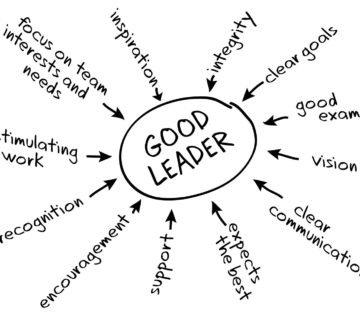Moliere said that, It is not only what we do, but also what we do not do, for which we are accountable. This really resonated with me as I’ve been reflecting for the past couple of days on accountability, and how it can positively or negatively influence your business.
What does that it actually mean to be accountable and what does being accountable look like in today’s business world?
People’s definitions of what accountability is will vary, depending on who they are and where their focuses lie. I have a fairly “old-fashioned” view of personal accountability. When I look at doing business with someone I look at how accountable they are to themselves, their potential and existing customers, and their own businesses. It’s not necessarily the big things that I always look at, but its the small things that matter sometimes.
Accountability rule #1: Commit to what you say you will do – So many people are so busy being busy, that one of the first things to fall off the accountability wagon is the ability to follow through on tasks. Remember that your business, which includes you, is constantly on stage and in the public arena for all to see. Your actions or lack of actions show your customers and potential customers how you operate. In order to send the right message such as “Im dependable and not a flake” and to build the right reputation, focus on being accountable for the small things in your business. Answer your emails, follow up on enquiries, return phone calls and arrive at meetings on time. Honestly, it doesn’t take a rocket scientist to do that! This doesn’t just show that you are accountable and dependable but it also shows respect and how serious you are about your business.
Accountability rule #2: Accept the consequences for your actions – When you make an excuse for not completing a task you need to accept the consequences, big or small. Making excuses doesn’t miraculously remove the consequence, your accountability, or the inconvenience for the other party. Therefore if you cannot deliver on a project, don’t just arrive with an excuse and think you are off the hook. Be accountable and be the first person to offer a solution.
In the business world, your customer doesn’t really care about your issues. They don’t want to hear your excuses. They just want their product or service delivered to them at the right time at the right price and in the right condition.
Accountability rule #3: Never pass blame – This can be a tricky one, especially when someone else has really stuffed up. But passing blame and shining the spot light on someone else’s imperfections makes you look like an amateur. This is where you should bite your tongue and move on. Rise above the situation and focus on solutions instead of excuses, sob stories and drama. Perhaps there is a need to build some safety nets in your business?
Accountability rule #4: Be honest – So the paw-paw has hit the fan, or you are unable to deliver on a project. Drop the ego and be honest about what’s going on. Getting into the habit of making excuses, dodging irate customer calls and passing blame doesn’t serve you and definitely doesn’t boost your reputation with your customers.
Most people in business have the best of intentions when starting out, so don’t let a lack of accountability, responsibility or ownership ruin your chances of building a strong and successful business. Be accountable.
- A business strategy is not enough - June 3, 2024
- Networking – quality or quantity? - February 19, 2024
- How behaviour profiling can work for your business - January 5, 2024




